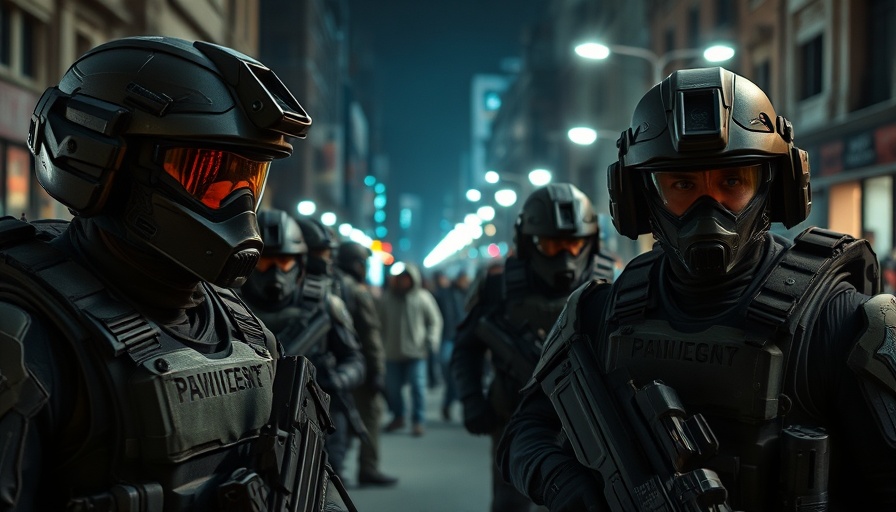
President's Authority and Public Safety: A Complex Intersection
The recent debates in the U.S. legal system surrounding President Trump's authority to deploy military troops domestically have reignited discussions on civil liberties and executive power. The case at the center of this storm involves Oregon challenging the deployment of hundreds of soldiers to Portland amidst claims of unrest. The U.S. 9th Circuit Court of Appeals, particularly the panel featuring two Trump-appointed judges, is poised to rewrite the narrative on presidential authority in domestic situations.
Understanding the Legal Landscape of Military Deployment
Historically, the deployment of the military for domestic issues, often termed 'Posse Comitatus,' has been a contentious subject. This principle was enacted to prevent the military from policing civilian populations, a scenario viewed as a potential infringement on personal liberties. However, as the legal arguments unfold in the Oregon case, it seems there’s an inclination towards broadening the interpretation of presidential powers, which could set a precedent altering historical legal boundaries.
Public Perception: Is It Really a Crisis?
The Oregon government argues that the president is creating a crisis narrative to justify military presence, a point emphasized by their calm assessment of Portland’s situation. Recent months have shown minimal unrest; skirmishes, when they occurred, were rather subdued. This dichotomy raises an essential question: Are the issue of safety and the acknowledgment of a lawless city being conflated to justify military action?
Potential Impact on Civil Liberties and Community Trust
Many community members feel anxious about the potential normalization of troop deployments on American streets. This worry isn't merely theoretical; it relates directly to fears around militarization affecting relationships between local law enforcement and communities, particularly in diverse areas like Bakersfield. When citizens perceive their towns as sites for military action rather than safe communities, it breeds mistrust, which ultimately undermines cooperation between the public and law enforcement.
What This Means for Future Legal Precedents
Legal experts suggest that if the panel favors the president, we could witness an unprecedented shift towards allowing greater federal intervention in local matters, which some view as an erosion of state autonomy. Such changes could rend the delicate fabric of American democracy, where local governance had historically held sway over local issues. A Supreme Court ruling on this matter could clarify the limits of military deployment in civilian contexts, impacting future administrations’ ability to engage in similar actions.
Connect With Community Leaders for Open Dialogues
As conversations around military presence in civilian settings become increasingly relevant, community forums could play a key role in bridging gaps. Engaging local leaders in the discussion about public safety, civil liberties, and the potential militarization of community policing can empower residents. Encouraging participation in local governance not only promotes transparency but also strengthens community ties.
Conclusion: The Importance of Staying Informed
The legal landscape surrounding military deployment within the United States is shifting, urging residents to stay informed and involved. Community dialogue, awareness of rights, and engagement with local leadership become crucial in navigating these challenging waters.
Let’s stay engaged and informed about our rights and the impacts on our community. Read, share your thoughts, and connect with local leaders.
 Add Row
Add Row  Add
Add 



Write A Comment